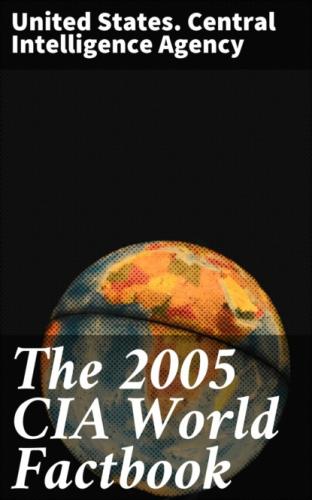Exports - partners:
Italy 71.7%, Canada 4.3%, Germany 4.3% (2004)
Imports:
$2.076 billion f.o.b. (2004 est.)
Imports - commodities:
machinery and equipment, foodstuffs, textiles, chemicals
Imports - partners:
Italy 34.8%, Greece 19.8%, Turkey 7.7%, Germany 5.3% (2004)
Reserves of foreign exchange and gold:
$1.206 billion (2004 est.)
Debt - external:
$1.41 billion (2003)
Economic aid - recipient:
ODA: $315 million (top donors were Italy, EU, Germany) (2000 est.)
Currency (code):
lek (ALL)
Currency code:
ALL
Exchange rates:
leke per US dollar - 102.649 (2004), 121.863 (2003), 140.155
(2002), 143.485 (2001), 143.709 (2000)
Fiscal year:
calendar year
Communications Albania
Telephones - main lines in use:
255,000 (2003)
Telephones - mobile cellular:
1.1 million (2003)
Telephone system:
general assessment: despite new investment in fixed lines, the
density of main lines remains the lowest in Europe with roughly 8
lines per 100 people; however, cellular telephone use is widespread
and generally effective
domestic: offsetting the shortage of fixed line capacity, mobile
phone service has been available since 1996; by 2003 two companies
were providing mobile services at a greater density than some of
Albania's Balkan neighbors
international: country code - 355; inadequate fixed main lines;
adequate cellular connections; international traffic carried by
microwave radio relay from the Tirana exchange to Italy and Greece
(2003)
Radio broadcast stations:
AM 13, FM 4, shortwave 2 (2001)
Radios:
1 million (2001)
Television broadcast stations:
3 (plus 58 repeaters) (2001)
Televisions:
700,000 (2001)
Internet country code:
.al
Internet hosts:
455 (2004)
Internet Service Providers (ISPs):
10 (2001)
Internet users:
30,000 (2003)
Transportation Albania
Railways: total: 447 km standard gauge: 447 km 1.435-m gauge (2004)
Highways: total: 18,000 km paved: 5,400 km unpaved: 12,600 km (2002)
Waterways:
43 km (2004)
Pipelines:
gas 339 km; oil 207 km (2004)
Ports and harbors:
Durres, Sarande, Shengjin, Vlore
Merchant marine:
total: 25 ships (1,000 GRT or over) 40,878 GRT/62,676 DWT
by type: cargo 24, roll on/roll off 1
foreign-owned: 2 (Denmark 1, Turkey 1)
registered in other countries: 1 (2005)
Airports:
11 (2004 est.)
Airports - with paved runways: total: 3 2,438 to 3,047 m: 3 (2004 est.)
Airports - with unpaved runways: total: 8 over 3,047 m: 1 1,524 to 2,437 m: 1 914 to 1,523 m: 2 under 914 m: 4 (2004 est.)
Heliports: 1 (2004 est.)
Military Albania
Military branches:
General Staff Headquarters, Land Forces Command (Army), Naval
Forces Command, Air Defense Command, Logistics Command, Training and
Doctrine Command
Military service age and obligation:
19 years of age (2004)
Manpower available for military service:
males age 19–49: 809,524 (2005 est.)
Manpower fit for military service:
males age 19–49: 668,526 (2005 est.)
Manpower reaching military service age annually:
males: 37,407 (2005 est.)
Military expenditures - dollar figure:
$56.5 million (FY02)
Military expenditures - percent of GDP:
1.49% (FY02)
Transnational Issues Albania
Disputes - international:
the Albanian Government calls for the protection of the rights of
ethnic Albanians in neighboring countries, and the peaceful
resolution of interethnic disputes; some ethnic Albanian groups in
neighboring countries advocate for a "greater Albania," but the idea
has little appeal among Albanian nationals; thousands of unemployed
Albanians emigrate annually to nearby Italy and other developed
countries
Illicit drugs:
increasingly active transshipment point for Southwest Asian
opiates, hashish, and cannabis transiting the Balkan route and - to
a far lesser extent - cocaine from South America destined for
Western Europe; limited opium and growing cannabis production;
ethnic Albanian narcotrafficking organizations active and expanding
in Europe; vulnerable to money laundering associated with regional
trafficking in narcotics, arms, contraband, and illegal aliens
This page was last updated on 20 October, 2005
======================================================================
@Algeria
Introduction Algeria
Background: After more than a century of rule by France, Algerians fought through much of the 1950s to achieve independence in 1962. Algeria's primary political party, the National Liberation Front (FLN), has dominated politics ever since. Many Algerians in the subsequent generation were not satisfied, however, and moved to counter the FLN's centrality in Algerian politics. The surprising first round success of the Islamic Salvation Front (FIS) in the December 1991 balloting spurred the Algerian army to intervene and postpone the second round of elections to prevent what the secular elite feared would be an extremist-led government from assuming power. The army began a crack down
